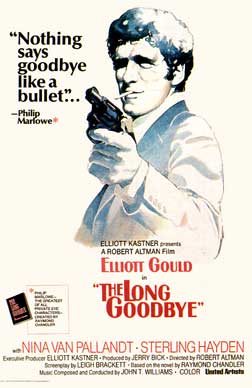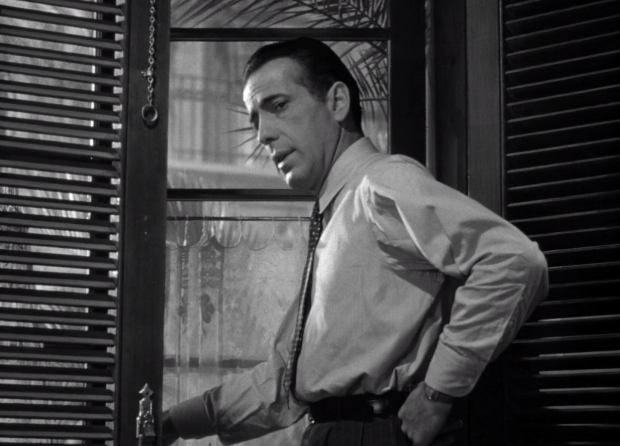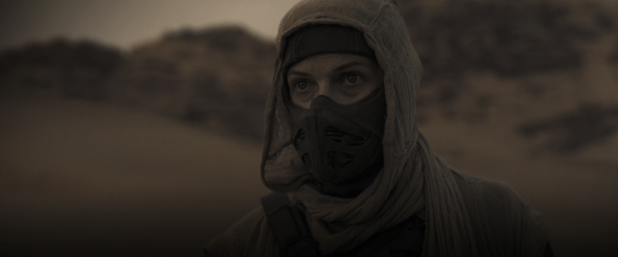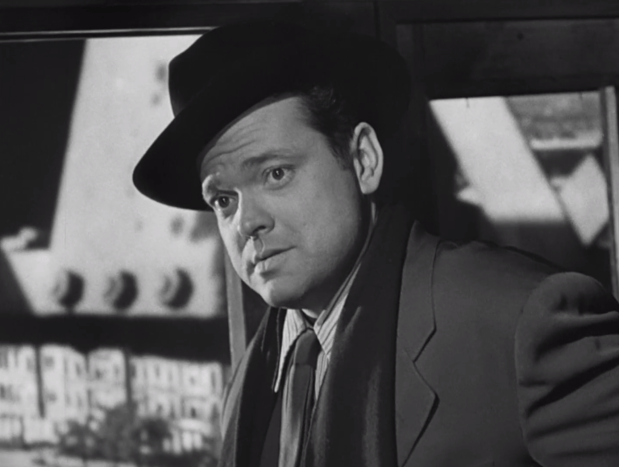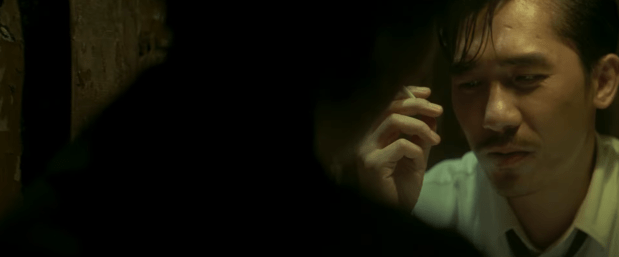In “Worst Best Picture” we search every single Best Picture Oscar winner of all time from 1927 to present to uncover the worst of them all. Conventional wisdom says that 2005’s winner Crash is the worst winner in history. We won’t stop until we’ve tested every last one. Read the the first, our review of Crash, here. Posts will be relatively spoiler free, but there may be some details revealed. Today’s installment is the 2024 winner Oppenheimer. Is it better than Crash?
This was the best year for the Oscars in decades. Top to bottom, this year’s films were better than any year in recent memory and you have to go back a very long time to start to get into years where, for the most part, the movies are excellent and the good ones win. That shouldn’t be as remarkable as it is, but this is the state of play.
Everyone brings their own perspective to the Oscars and that inherently makes a contest where we reward specific art as better than other art a silly premise. If Barbie reinvigorated your love of cinema then you are going to be frustrated when it does not do well during awards season. If you didn’t see Killers of the Flower Moon or Oppenheimer, then you are going to roll your eyes when the super-serious, over-the-top dramatic seemingly typical fare is nominated for everything. It helps to remember that when engaging with the reactions to the months of awards and the fallout, pun not necessarily intended.
The best movie that came out this year was The Zone of Interest, and I will go so far as to say that I think, maybe, it is the best movie ever made, period. I’ve never seen anything like that in a theater and I have never had something stick with me the way that movie did. I don’t think a lot of people saw it, compared to most of the stuff this year, and I don’t think it’s the kind of thing that would win, anyway. I just want to take a moment to acknowledge it and to encourage you to see it. I realize that talk is cheap and hyperbole is the bread-and-butter of this series, but at least today, I don’t think you can make a list of great modern movies without starting with The Zone of Interest.
But the reason I say this year’s Oscars are so special is that the Best Picture list, with the notable and specific exception of Maestro, is one of the best ever assembled. Nine of the ten pictures are worth your time and that, frankly, is a miracle. Maestro is a miserable, frustrating experience that seemingly forgets instantly that it is intended to be a movie about music. It was widely panned, somewhat because of Bradley Cooper’s level of earnestness that people do not seem to respect or believe, but I am still glad to see it blank the evening with zero awards. Bradley Cooper has made great work and will make it again, but we should not reward people for Doing a Lot of Acting. The last decade of Oscars is full of embarrassing stuff that looks a lot like Maestro, so part of me was a little surprised to see it flame out.
But after that, you’re left with a long list of great films to see. Even Past Lives, which I found a little slight and a little ridiculous with undeveloped characters, is sweet and seems to have worked for most folks that saw it. Movies like Poor Things and Anatomy of a Fall would clean up even more than they did in other years. American Fiction and The Holdovers are remarkable films with incredible lead performances. Barbie was a phenomenon for a reason. Killers of the Flower Moon would win it all in some years. This is just a very hard year and that’s very good news.
So, now, we come to it. It’s been inevitable for weeks, which does tend to take some of the shine off the apple. Oppenheimer is a fantastic, epic film. It made a billion dollars and it convincingly showcased both an atomic bomb blast and the horrors of living with making the world a demonstrably worse place. Christopher Nolan has made a lot of movies I’ve liked (and some other ones) and the cast here is second-to-none. It was destined for this moment and it was so obvious that it wasn’t even really that upsetting when Al Pacino just sorta blurted out that it won at the end of an, honestly, pretty good Oscars ceremony. Everyone knew this was happening and then everyone accepted it with grace when it did.
I saw Oppenheimer in the theater and it seemed fine, but it took a second watch to make it really click all the tumblers into place in my head. Once you’re prepared for the pacing and you’re watching Cillian Murphy’s haunted performance for what it is, it feels less like the movie you expect it to be and more like the movie it is. This is, sure, the story of a man who made a bomb and lost his security clearance and all that, but it’s more primal than that. This is the story of living with the consequences of you getting what you want. This is the final shot of The Graduate, but with global stakes and years and years to see it coming and do nothing to stop it.
It’s also an extremely brave movie in several respects. On the one hand, it’s insane that the bomb itself goes off not as a climax, but as another event that drives on what we’re actually talking about. On another hand, it’s insane how often we see what would be unimportant, secondary motivational conversations in another movie but are the actual damn plot in this one. Nolan proves a point, again and again, that “save the world with the bomb” is not actually as motivating as the personal, real, experienced stakes are for these characters. A character jokes with Murphy that the world is hostile to their kind and he half-jokingly proposes an answer of “physicists?” It would be a bold joke to be visited once, but it’s the core of the movie. We’re fighting Hitler, not just because Hitler is bad, but because of something more core to who “we” are.
It’s going to strike a lot of people as a boring choice. It did hit me that way, at first, but I think it’s worth sitting with it if you feel that way. I think what Nolan has done here is remarkable primarily because the premise of this is not really that interesting, but the thing he’s delivered is a shocking version of that premise. When you look back over the best modern winners, you find movies like Spotlight. There’s nothing about Spotlight that inherently seems like it would be memorable, but I still remember the transformative element of watching the reporters get frustrated over the coverage and the reality that they were going to struggle to enact real change against a monolithic entity. The ability to tell the basic story makes it a good movie, but the fact that you feel that secondary thing happening makes it a great one.
Oppenheimer is not the best movie to ever win Best Picture, but it’s a real masterpiece that feels important and is important. It helps to watch movies like Maestro to understand why this particular magic trick is so hard. This is a movie where the main character goes out to a field to talk to literally Albert Einstein about literally math. This is not inherently going to be interesting, but the score spurs you on and the stakes feel tremendous without a lot of bullshit. Maestro is constantly telling you how important, how special, how meaningful all this is, but Oppenheimer trusts that you’ll sort that out on your own when you see it on the screen. Oppenheimer may not be an inspired choice for the award, but it’s a deserving one, and you have a handful of examples of what the bad version looks like, should you need them.
The Best Part: Cillian Murphy is incredible, splitting the difference between moody, too-smart asshole and worried, fearful nightmare. Best Actor has been a bit of a disaster for the last decade or so, with few exceptions, but this year it was so obvious and so excellent and especially in a rewatch you really notice how incredibly he sells the tonal shifts that make this movie work.
The Worst Part: I don’t think either of the women in Oppenheimer’s life get enough time to really shine. Emily Blunt and Florence Pugh are functionally barely in this movie. I don’t know that you really need to change anything and it’s already three hours long, but even on a rewatch it feels like so much is conveyed across a cast of fifty people and yet we really do not spend very much time at all with them.
Is It Better or Worse than Crash? Loads better. I’ve obviously slammed Maestro a lot here and I think it is a flawed movie, but even the worst stuff this year deserves some attention. Nyad is a weird experience because it is unwilling to confront the obvious lies in the real person’s story and May December did not work for me as a campy experience, but even those movies, messy as they are, are not worthy of the Crash comparison. This year’s Oscar crop is the best since 2007, I think, and that takes some of the fun out of this premise. I have faith, though. Next year, I bet we’ll see something truly horrid get nominated. I can’t wait.
Worst Best Picture Archives: Crash | Terms of Endearment | Forrest Gump | All About Eve | The Apartment | No Country for Old Men | Gentleman’s Agreement | 12 Years a Slave | The Last Emperor | The Silence of the Lambs | The Artist | A Man for All Seasons | Platoon | The Lord of the Rings: The Return of the King | The King’s Speech | Rain Man | The Departed | The Bridge on the River Kwai | Marty | Gigi | It Happened One Night | Driving Miss Daisy | Shakespeare in Love | Wings | Midnight Cowboy | Rocky | Gone with the Wind | Chicago | Gladiator | Cavalcade | The Greatest Show on Earth | You Can’t Take It With You | The Best Years of Our Lives | The Godfather| Casablanca | Grand Hotel | Kramer vs. Kramer | The French Connection | In the Heat of the Night | An American in Paris | Patton | Mrs. Miniver | Amadeus | Crash, Revisited | How Green Was My Valley | American Beauty | West Side Story | The Sting | Tom Jones | Dances with Wolves | Going My Way | The Hurt Locker | The Life of Emile Zola | Slumdog Millionaire | The Deer Hunter | Around the World in 80 Days | Chariots of Fire | Mutiny on the Bounty | Argo | From Here to Eternity | Ordinary People | The Lost Weekend | All the King’s Men | Rebecca | A Beautiful Mind | Titanic | The Broadway Melody | The Sound of Music | On the Waterfront | Unforgiven | Million Dollar Baby | My Fair Lady | Hamlet | Braveheart | Oliver! | The English Patient | Lawrence of Arabia | Cimarron | One Flew Over the Cuckoo’s Nest | All Quiet on the Western Front | The Great Ziegfeld | Out of Africa | Schindler’s List | Gandhi | Ben-Hur | The Godfather Part II | Annie Hall | Birdman or (The Unexpected Virtue of Ignorance) | Spotlight | Moonlight | The Shape of Water | Green Book | Parasite | Nomadland | CODA | Everything Everywhere All at Once | Oppenheimer
Alex Russell lives in Chicago and is set in his ways. Disagree with him about anything at readingatrecess@gmail.com or on Twitter at @alexbad.

